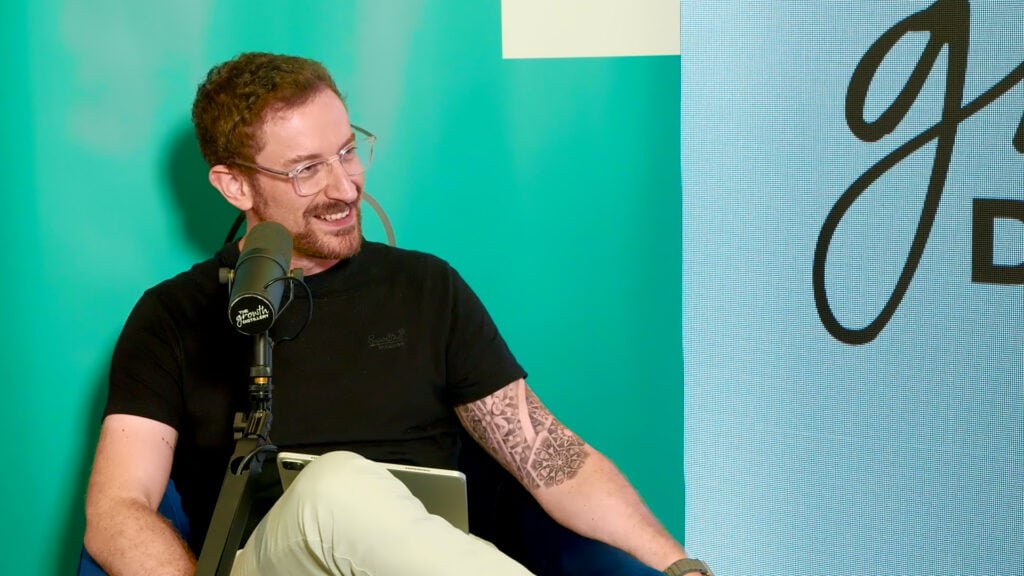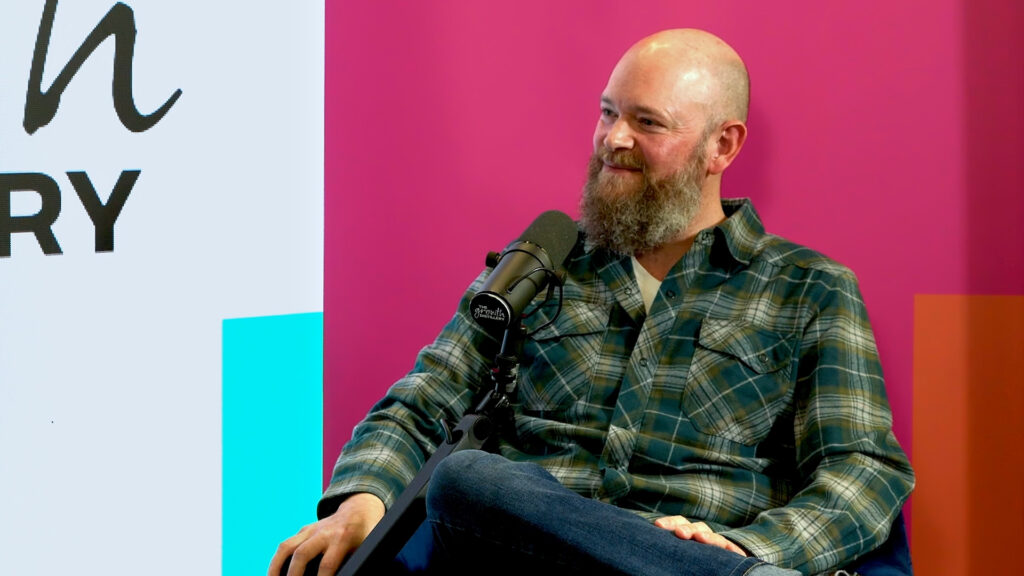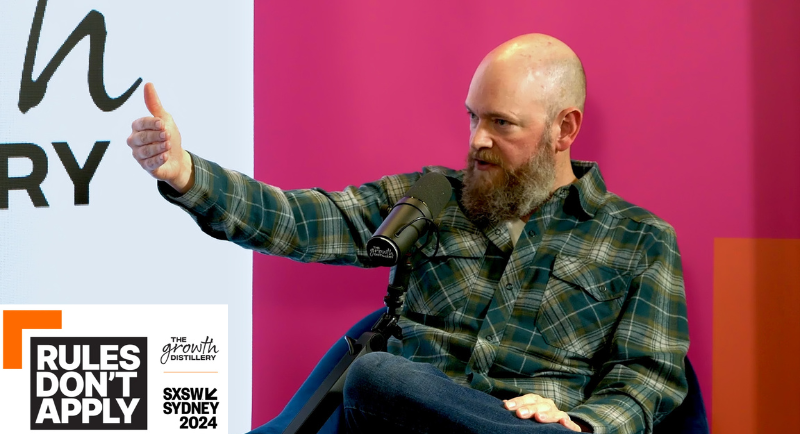As part of its presence at SXSW Sydney in 2024, The Growth Distillery hosted a series of 10 vodcasts (a podcast with video) hosted by Dan Krigstein and branded Rules Don’t Apply.
Second guest on the series was futurist Brian David Johnson. Krigstein, director of News Corp’s The Growth Distillery & The Growth Intelligence Centre, introduced his guest for the episode:
BDJ, as he is affectionately known, is a man that has made the future his business. From 2009 to 2016, he was the Intel Corporation Futurist in Residence. Currently, he is the professor and futurist in residence at Arizona State University Global Futures Lab and currently the director of ASU’s Threat Casting Lab.
He explained BJD is one busy person: He is prevalent in private practice across a huge range of groups including government, military, corporation, non-profit, and done a whole bunch of stuff with NATO as well. He holds 40 patents, is a best-selling author of both science fiction and non-fiction books including a threat casting textbook. Future You, War Wizards and Robots, and 21st Century Robot. He’s a frequent commentator on the BBC, Bloomberg, PBS, Fox News, the Discovery Channel, and has been featured in the Scientific American, Forbes, Inc., and Popular Science. He has also directed two feature films, is an illustrator and a commissioned painter.

Dan Krigstein
Krigstein started the conversation asking if there were three territories where we are going to have to truly throw the baby out with the bathwater in terms of our conventional wisdom over the next 10 years, what would those three be?
BDJ: I’d be remiss without saying we should talk about AI, which is what we’re talking about here and all that. And that’s one. I’ve got a bit of a little bit of a different slant and how I think about AI having worked on AI for 20 plus years.
Another one is the intersection between biology and technology. Sometimes called synthetic technology, sometimes called, genetics. There’s this really interesting world that I’ve been tracking since about 2013. That will fundamentally change how we think of biology and information and things like that.
The final one would be the power of human creativity.
Let’s start at the end and work backwards, because I think we could drown an hour’s worth of discussion on AI.

Brian David Johnson
DK: So why is creativity being thrown out with the baby?
BDJ: Radically changed, not thrown out. How we think about creativity, all these technologies that are happening and the sort of the value of them, the fact that we need to keep human beings at the centre.
One of the things that human beings are amazing with is creativity. And how we value that creativity, how we value humans. For many, many times, human beings were treated like machines. Like they were just doing a task or they were just giving birth, or they were just doing this.
As we have all of these technological changes coming, it’s pushing us to radically think differently about what humanity is. And I don’t think in a bad way. I actually think in a way, like when I talk about robots or AI or synthetic biology or anything like that. If those things take over tasks that human beings are doing, that’s great because that means you were being turned into a machine. So let’s not turn people into machines. Let’s actually value humanity. I think it’s one of the most uncomfortable things – starting to look at humanity and think about, all right, how are we valuing it?
How are we doing? And one of the things that I love about humanity is the creativity, is our humour, is the things that make us unique. The culture that makes us uniquely human and how we interact with each other. And for me that just becomes more and more amplified.
See also: Layne Beachley first guest on Rules Don’t Apply vodcast series from The Growth Distillery
